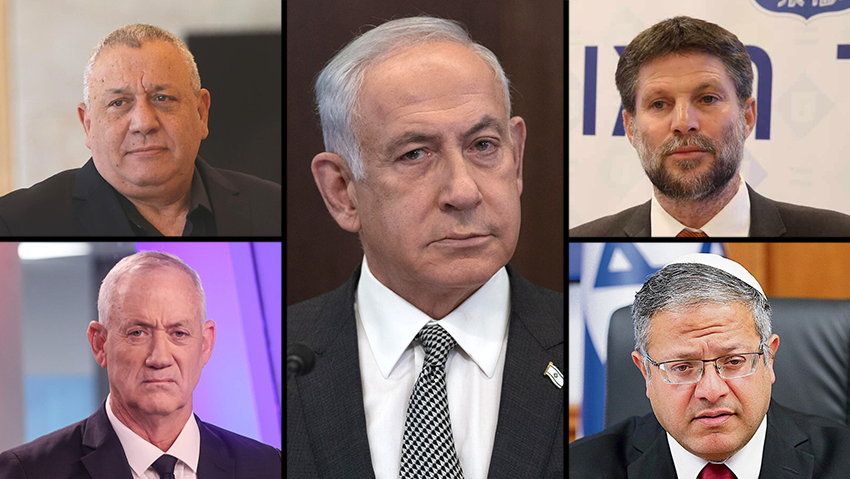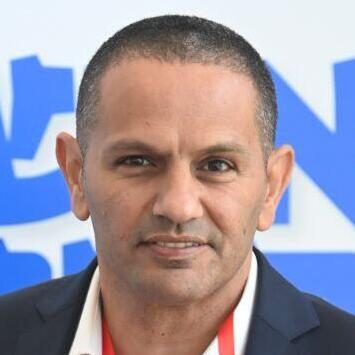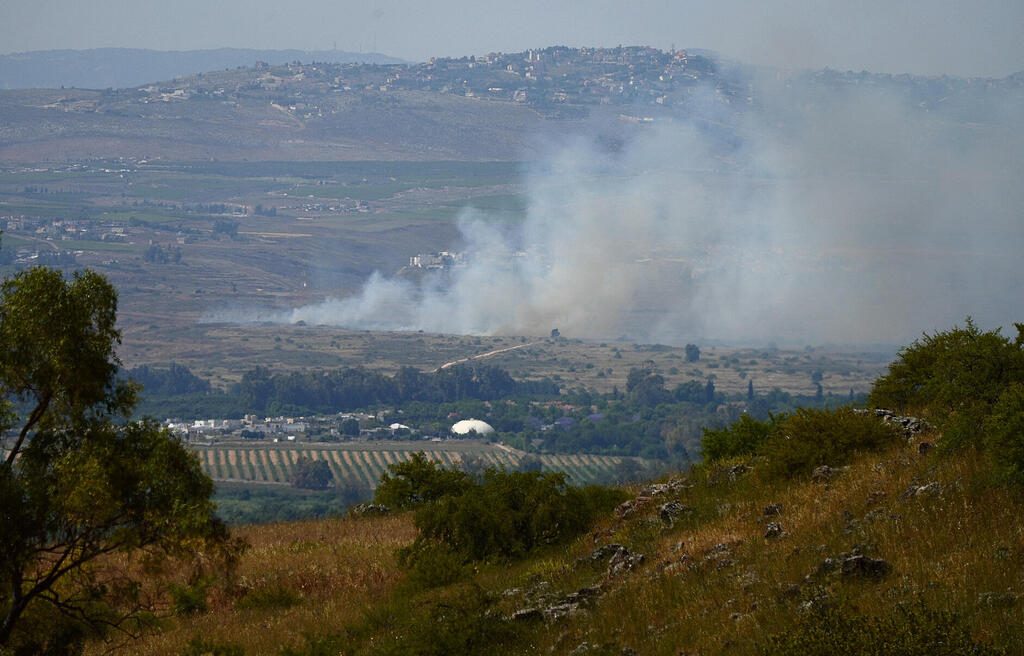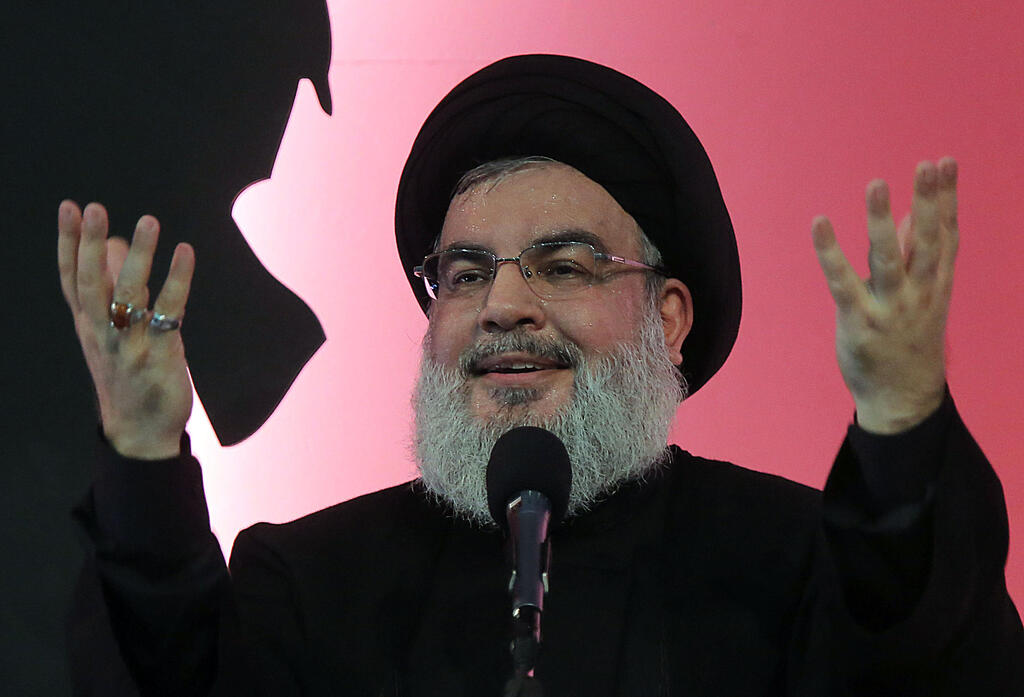In the past two weeks, Hezbollah has intensified attacks against Israel along the northern border. The terror organization is aiming at strategic assets with long-range missiles while utilizing drones and missile strikes in border-adjacent attacks. Nasrallah's responses to IDF strikes have also escalated, while at the same time avoiding a full-scale war, knowing that Israel's tolerance has its limits.
To understand where we are heading, one must revisit Nasrallah's recent speech before the memorial ceremony for killed Hezbollah military leader Mustafa Badreddine and an article by Ibrahim al-Amin published on Friday in the Al-Akhbar newspaper. Nasrallah's position is very clear: "You have two options. Either accept Hamas' proposal for a deal and leave Gaza, thus admitting a major defeat, or continue the war of attrition that will defeat Israel and plunge it into the abyss."
In the article, Hezbollah has established a centralized command center whose purpose is to wear down Israel over time. The organization issued an official statement claiming that, in the past two weeks alone, it targeted dozens of sensitive targets in Israel which limits the IDF's ability to retaliate as it wishes. This inevitably pushes Israel and Lebanon on a collision course.
Defense Minister Yoav Gallant addressed this issue again during his visit to the north on Friday. "Just as I told the soldiers before we entered Gaza, and they didn't believe me, I'm telling you now: Wait, we will act," he clarified. "I understand the level of damage, but on the other hand, the damage and the number of terrorists we killed are entirely different in magnitude." Last week, Nasrallah chose to call him a "junkie," indicating the enemy's arrogance in this war.
However, the heart of the problem, as described here several times, lies in the IDF's ability to make a decisive move in Lebanon while the forces are currently in Gaza. As of now, 10 divisions are active there and the military should reorganize to address the failure to build the necessary military force.
Throughout this war, the IDF has been dealing with enemies that cleverly exploit the media by filming their accomplishments for psychological terror while they face little to no opposition from their people and media. However, Hezbollah is also paying a heavy price due to its aggression against Israel.
Just in the past week, the IDF killed a seasoned Hezbollah intelligence commander. He took part in an attack on Israel in 1997, fought in the Second Lebanon War in 2006, and assisted Syrian President Bashar Assad in the Syrian Civil War. About 300 more Hezbollah operatives were killed, including around 10 senior officers.
Most of the elite Hezbollah Radwan force also has been pushed five kilometers away from the border. Although the IDF attacked Radwan camps, ammunition warehouses, precision missile factories and air defense infrastructures, it seemed to have missed the drone warehouses. Given the new threat, it's important to destroy them more than the air defense systems. The significant challenge is dealing with drones using intelligence and technological means. For now, the results are not promising.
Despite Hezbollah achieving one of its strategic goals, forcing Israel to evacuate northern towns, the situation in Lebanon is far worse than in Israel. Over 1,700 homes were completely destroyed, and damage was caused to 14,000 structures in southern Lebanon.
Agricultural lands were also damaged, which is hard to estimate at the moment. Unlike Israel, there is no compensation in Lebanon for the 150,000 displaced civilians. Nasrallah does not address the damages and, as far as he's concerned, southern Lebanon is of no consequence; but the pressure on the government from there is growing.
In conclusion, as long as there is no hostage deal, and the war in Gaza continues, Israel will soon need to make a strategic decision regarding the north as the fighting there is no longer limited. There are many pressure points in Lebanon, such as civilian targets and expanding attacks northward toward Beirut while risking a full-scale war that would impact Israel's home front. These could be days of intense fighting, possibly leading to a wider conflict. Nasrallah leaves no choice and expands the conflict despite preferring this war of attrition.
3 View gallery


Fragmented cabinet limits IDF's actions
(Photo: Amit Shabi, Alex Kolomoisky, Yariv Katz, EPA)
Meanwhile, Israel's internal politics is challenging its ability to reach a decision. With all the ministers bickering among one another, the cabinet seems fragmented and full of suspicion. It is hardly possible to manage activity in Gaza this way, so sending the army to the depths of Lebanese soil simultaneously and telling the public it will be fine doesn't seem like a reasonable scenario at the moment.





